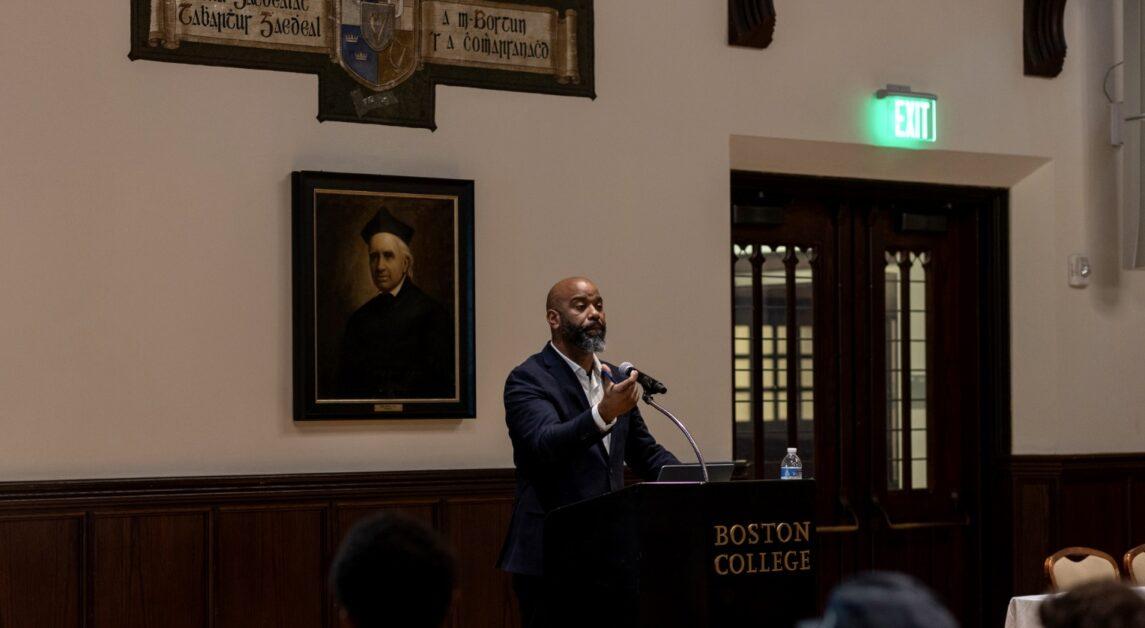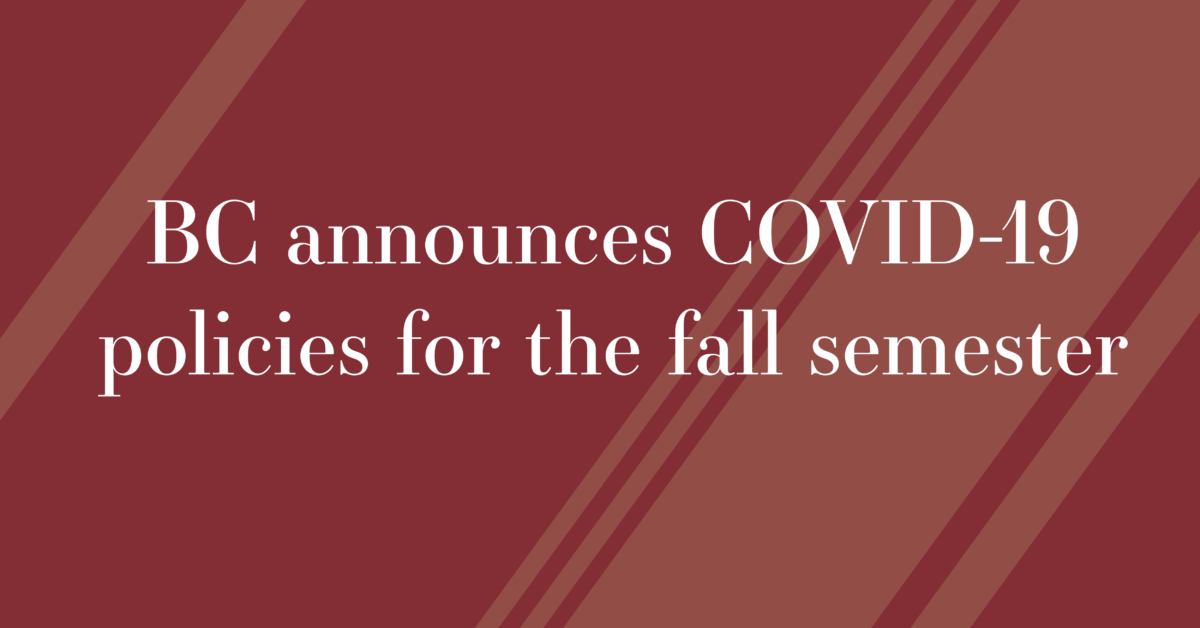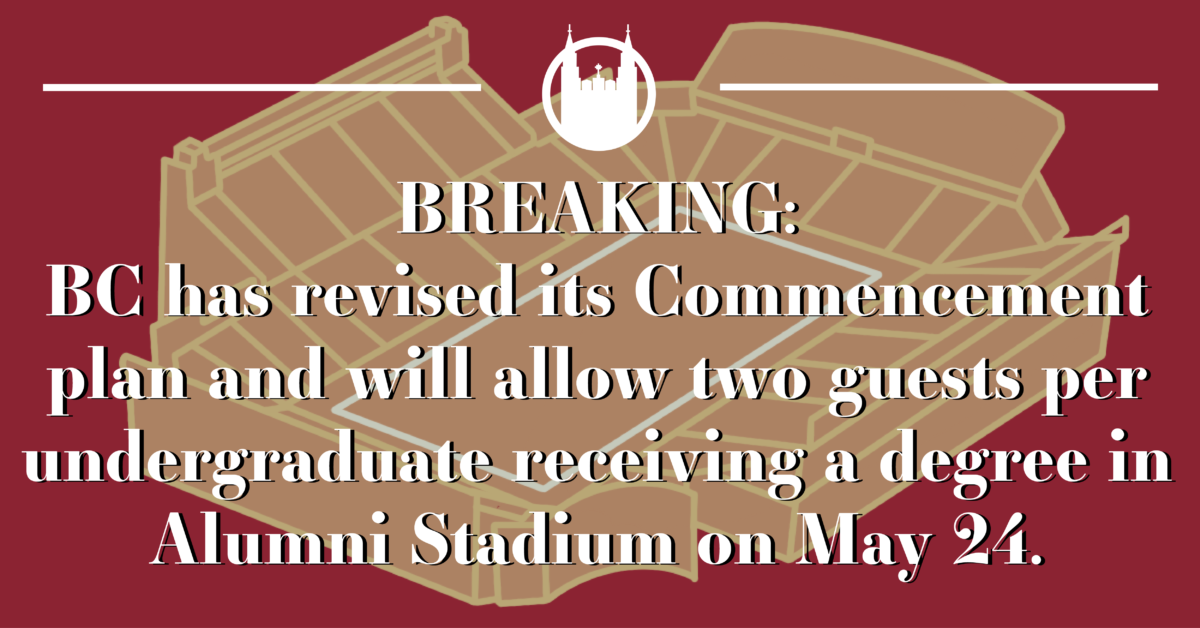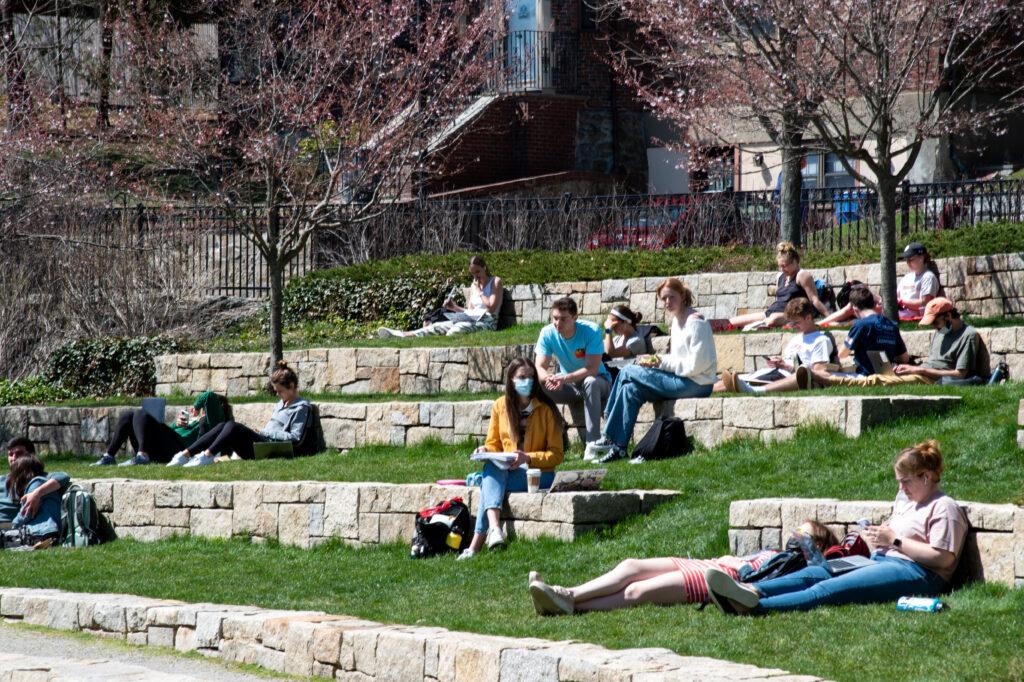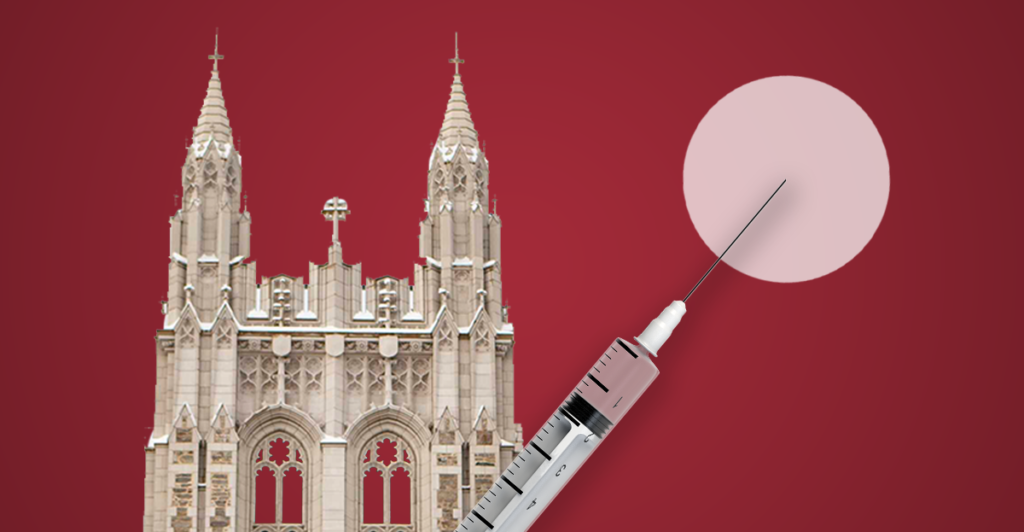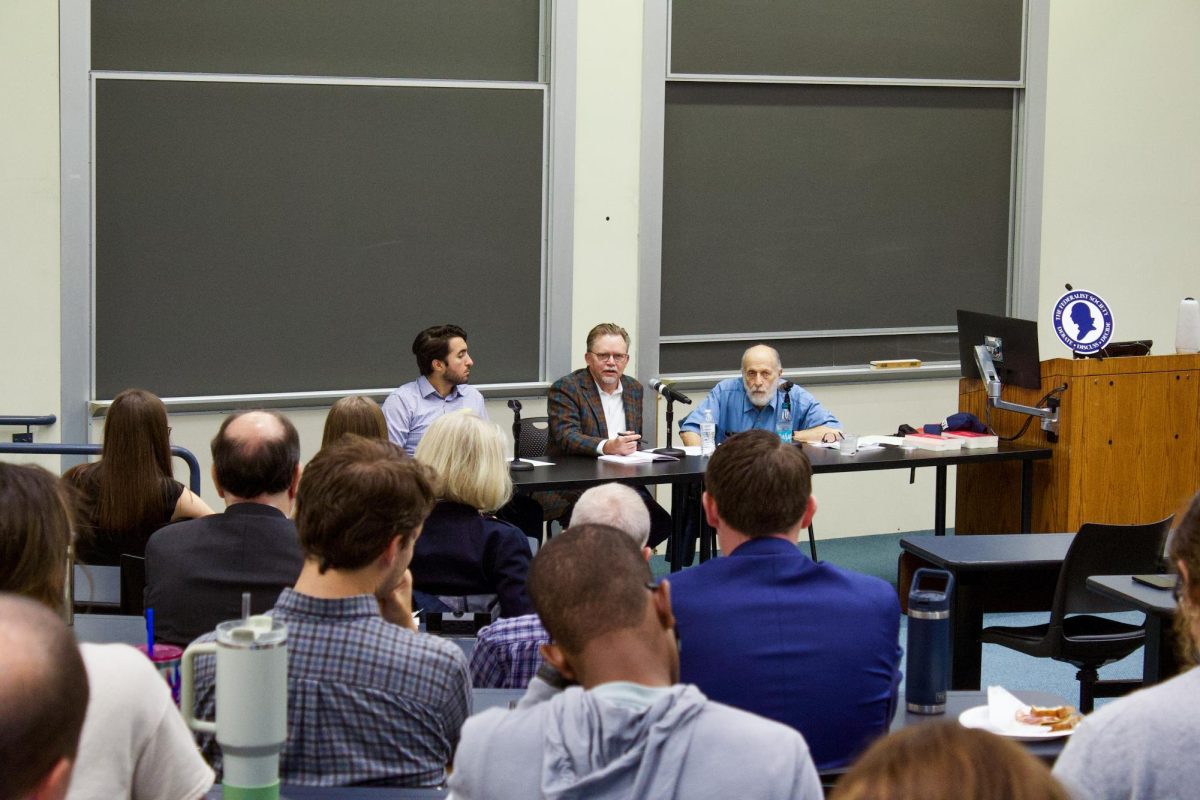The Undergraduate Government of Boston College Senate passed a resolution on Tuesday advocating for a University response to the possible risk of an on-campus coronavirus outbreak.
The resolution, proposed by senators Crystal Pu, Senate president pro tempore and Lynch ’20, and Dennis Wieboldt, UGBC presidential candidate and MCAS ’23, called on the BC administration to adopt a list of health and safety precautions and provide mental health resources for students. It garnered 19 votes in support and one abstention—narrowly clearing the 17-vote requirement, as several senators arrived late from campaigning for the UGBC presidency and vice presidency.
“Despite the fact that members of every other President/VP campaign chose to (1) not show, or (2) arrive with less than half of the meeting left, we have remained focused on working diligently for the student body, not our own interests,” Wieboldt posted on Facebook.
Wieboldt, coming from an internship, also arrived late to the meeting, and Lorenzo Leo, his vice presidential running mate and MCAS ’23, missed the meeting due to illness. The members of the other three teams were campaigning, missing all or part of the meeting.
The measure comes in response to the recent coronavirus outbreak that began in Wuhan, China. There have been more than 31,000 confirmed cases in China, and the virus has killed over 600 people, according to The New York Times. Although more mild strains of coronavirus are comparable to the common cold, the new Wuhan strain is more severe.
As of Friday, there have been 12 confirmed cases in the United States, according to the Times, including one Boston resident. The Massachusetts Department of Public Health announced on Saturday that the risk to the public remains low in Massachusetts.
Thomas Nary, director of University Health Services, sent an email to the student body on Jan. 30 noting that the Center for Disease Control considers the U.S. risk of infection to be low and outlining ways to prevent contamination. He also confirmed in a Jan. 29 email to The Heights that there were no suspected cases at BC.
While presenting the resolution, Pu noted the large number of Chinese international students who may have had contact with coronavirus or have family members at risk of infection. There are currently a combined 909 undergraduate and graduate international students from China, according to the 2019-2020 BC Fact Book.
The first part of the resolution asked the University to help prevent or restrict the spread of illnesses on campus, beginning with academic and medical accommodation for students who chose to self-isolate for the 14-day incubation period. It also advocated for the creation of a travel disclosure form similar to one launched at the Massachusetts Institute of Technology for students who have recently traveled from China or been in contact with those who have.
“I would recommend the UHS to closely monitor students who have traveled to China or have been in contact with potentially-infected individuals in the past 14 days,” Pu said in an email to The Heights. “Self-quarantine, self-isolation, and self-monitoring should be encouraged to protect the health of the concerned individuals and the rest of the student body, especially since the precautionary measures have not attracted enough attention from many students on campus.”
The final provision concerning preventative measures called on the Office of Health Promotion (OHP) to make hand sanitizer, tissues, and facemasks more conveniently available across campus. It also called on OHP to advocate for strict sanitary practices among the student body.
The remaining sections of the resolution addressed anxiety felt by Chinese students, many of whom have had racist and xenophobic remarks directed at them, Pu said. She noted that students with families in China might be in need of expanded mental health resources, naming the Office of International Students and Scholars and University Counseling Services as potential partners for Chinese student groups.
“There is a culture among the Asian students not to not talk about mental health problems,” Pu said. “It is important for the University to reach out actively to them and make sure they’re okay and provide treatment if possible.”
The resolution suggested the University encourage faculty and staff proficient in Mandarin Chinese or familiar with Chinese culture and values to make themselves available to students.
Pu also drew attention to the risk of bias against Chinese students—saying that she has overheard other BC students making jokes about international students being contagious. The final part of the resolution called on the University to take proactive measures and commit to a firmer stance against incidents of discrimination against Asian and Asian American students.
“We need to make sure that the coronavirus is not being used as an excuse for students to make any racist or xenophobic comments and protect the safety of all students,” Pu said.
Several senators raised concerns about the resolution, including the risk that it could unnecessarily stoke fears despite the low risk the disease currently poses to BC students.
In response, Pu argued that the resolution only added extra security measures and provided an opportunity for students to educate themselves about coronavirus. Wieboldt noted that the presence of racist and xenophobic sentiments around campus was proof that there was already significant fear.
Ultimately, just one senator—Matthew Holcomb, CSOM ’20—chose to vote against the resolution. In an interview with The Heights, Holcomb explained that his abstention from the vote was in response to the self-isolation provision. Holcomb took issue with the self-isolation provision, believing that the original version signaled that students ought to self-isolate if they have been to China recently or had returned from China since Jan. 20.
“I think that the UGBC Senate is an advisory committee that represents students in advising the administration in matters involving said students, but I don’t think our body has any authority nor jurisdiction to compel students to some action,” Holcomb said.
Just before voting, Holcomb recommended that the paragraph in question—which had been changed to say “students choosing to self-isolate”—should be removed.
Wieboldt responded by saying that the self-isolation was only advisory, like a similar recommendation made by the Center for Disease Control.
Featured Image by Madison Sarka / For The Heights







